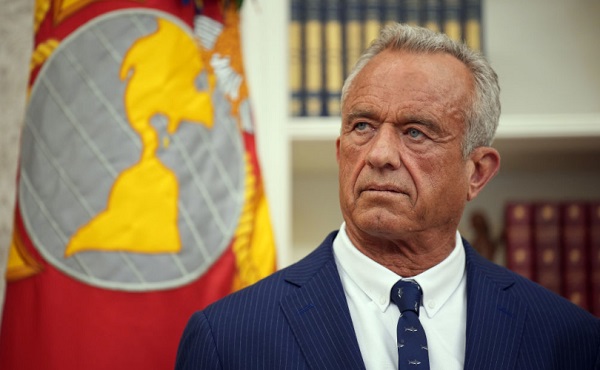Business
Mark Carney’s Leadership Looks A Lot Like The Last Guy’s

From the Frontier Centre for Public Policy
By David Leis
Carney was supposed to herald change, but housing and affordability pressures are still hitting Canadians hard
Canadians voted for change in April 2025, choosing Mark Carney as prime minister. But months into his leadership, the same old problems—unaffordable housing, rising debt, stagnating wages—remain. Carney, once hailed as a financial saviour, now looks more like a polished steward of the status quo than a reformer.
His background as a former governor of the Bank of Canada and the Bank of England earned him a reputation as a steady hand during turbulent times. His global profile and polished demeanour offered the promise of competence and credibility. However, his approach so far suggests continuity rather than change. Many of the policies shaping the current landscape appear to build on, rather than depart from, the Trudeau years.
While his arrival was greeted by many in the political and economic establishment as a new chapter, for everyday Canadians grappling with affordability and access to services, the gap between expectations and outcomes remains wide. The question is no longer whether Carney can bring order to complex systems—it’s whether he understands the urgency of tackling structural barriers that weigh down Canadians’ economic prospects.
These concerns became especially clear in a recent conversation I had with Bruce Pardy, professor at Queen’s University, and Dan McTeague, former Liberal MP and president of Canadians for Affordable Energy, about the June 2 First Ministers’ Meeting in Saskatoon, a gathering of the prime minister and provincial premiers to discuss national priorities.
Both voiced concerns about the summit’s impact. Both suggested the gathering leaned more toward symbolism than substantive economic reform.
Carney’s technocratic style, emphasizing top-down economic management, reflects a belief that prosperity can be orchestrated through expert planning. But as Pardy put it, “Whatever you heard at the Saskatchewan meetings doesn’t matter a hill of beans. Governments don’t build economies. People do.”
Government-led initiatives—such as national energy strategies and net-zero mandates—may be well-intentioned, but critics argue they risk overlooking the importance of local innovation, market freedom and individual enterprise. Too often, these programs are rolled out without proper coordination with the provinces or attention to regional economic differences.
McTeague was equally blunt, describing the summit as “more theatre than it is, in fact, practical or necessary.” He observed that while premiers issued joint statements, core structural issues like interprovincial trade barriers and regulatory overlap remained unaddressed.
Beyond the lack of substantive reform, even the summit’s slogan “building one Canadian economy,” a phrase intended to signal unity and collaboration across provinces, sparked debate. For some, it highlighted long-standing barriers that fragment the national market, such as labour mobility and transportation hurdles. These complications continue to frustrate efforts to create seamless economic integration.
This frustration is especially acute in provinces like Alberta and Saskatchewan. “Alberta, in a sense, is the cash cow of Confederation,” said Pardy. “And the people who have power in Confederation are not going to be open to the idea that the arrangement has to be fixed.” Calls for greater autonomy for Western provinces are not rooted in ideology but in years of perceived inequity and exclusion from decision-making in Ottawa.
Stepping back from the summit itself, the challenges Canada faces, including housing affordability, immigration pressures and healthcare delays, are real and pressing. Carney did not create these issues, but his government has yet to offer bold departures from the status quo. A clearer vision for tackling affordability, economic growth and service delivery is still awaited.
Canadians don’t just want refined messaging or polished leadership—they want results. And while new leadership always brings hope, what matters most is whether long-standing issues are being meaningfully addressed.
So far, for many, that change still feels out of reach.
David Leis is President and CEO of the Frontier Centre for Public Policy and host of the Leaders on the Frontier podcast.
Business
What Pelosi “earned” after 37 years in power will shock you

Nancy Pelosi isn’t just walking away from Congress — she’s cashing out of one of the most profitable careers ever built inside it. According to an investigation by the New York Post, the former House Speaker and her husband, venture capitalist Paul Pelosi, turned a modest stock portfolio worth under $800,000 into at least $130 million over her 37 years in office — a staggering 16,900% return that would make even Wall Street’s best blush.
The 85-year-old California Democrat — hailed as the first woman to wield the Speaker’s gavel and infamous for her uncanny market timing — announced this week she will retire when her term ends in January 2027. The Post reported that when Pelosi first entered Congress in 1987, her financial disclosure showed holdings in just a dozen stocks, including Citibank, worth between $610,000 and $785,000. Today, the Pelosis’ net worth is estimated around $280 million — built on trades that have consistently outperformed the Dow, the S&P 500, and even top hedge funds.
The Post found that while the Dow rose roughly 2,300% over those decades, the Pelosis’ reported returns soared nearly seven times higher, averaging 14.5% a year — double the long-term market average. In 2024 alone, their portfolio reportedly gained 54%, more than twice the S&P’s 25% and better than every major hedge fund tracked by Bloomberg.
Pelosi’s latest financial disclosure shows holdings in some two dozen individual stocks, including millions invested in Apple, Nvidia, Salesforce, Netflix, and Palo Alto Networks. Apple remains their single largest position, valued between $25 million and $50 million. The couple also owns a Napa Valley winery worth up to $25 million, a Bay Area restaurant, commercial real estate, and a political data and consulting firm. Their home in San Francisco’s Pacific Heights is valued around $8.7 million, and they maintain a Georgetown townhouse bought in 1999 for $650,000.
The report comes as bipartisan calls grow to ban lawmakers and their spouses from trading individual stocks — a move critics say is long overdue. “What I’ll miss most is how she trades,” said Dan Weiskopf, portfolio manager of an ETF that tracks congressional investments known as “NANC.” He described Pelosi’s trading as “high conviction and aggressive,” noting her frequent use of leveraged options trades. “You only do that if you’ve got confidence — or information,” Weiskopf told the Post.
Among her most striking trades was a late-2023 move that allowed the Pelosis to buy 50,000 shares of Nvidia at just $12 each — less than a tenth of the market price. The $2.4 million investment is now worth more than $7 million. “She’s buying deep in the money and putting up a lot of money doing it,” Weiskopf said. “We don’t see a lot of flip-flopping on her trading activity.”
Republicans blasted Pelosi’s record as proof of Washington’s double standard. “Nancy Pelosi’s true legacy is becoming the most successful insider trader in American history,” said RNC spokesperson Kiersten Pels. “If anyone else had turned $785,000 into $133 million with better returns than Warren Buffett, they’d be retiring behind bars.”
Business
Ottawa should stop using misleading debt measure to justify deficits

From the Fraser Institute
By Jake Fuss and Grady Munro
Based on the rhetoric, the Carney government’s first budget was a “transformative” new plan that will meet and overcome the “generational” challenges facing Canada. Of course, in reality this budget is nothing new, and delivers the same approach to fiscal and economic policy that has been tried and failed for the last decade.
First, let’s dispel the idea that the Carney government plans to manage its finances any differently than its predecessor. According to the budget, the Carney government plans to spend more, borrow more, and accumulate more debt than the Trudeau government had planned. Keep in mind, the Trudeau government was known for its recklessly high spending, borrowing and debt accumulation.
While the Carney government has tried to use different rhetoric and a new accounting framework to obscure this continued fiscal mismanagement, it’s also relied on an overused and misleading talking point about Canada’s debt as justification for higher spending and continued deficits. The talking point goes something like, “Canada has the lowest net debt-to-GDP ratio in the G7” and this “strong fiscal position” gives the government the “space” to spend more and run larger deficits.
Technically, the government is correct—Canada’s net debt (total debt minus financial assets) is the lowest among G7 countries (which include France, Germany, Italy, Japan, the United Kingdom and the United States) when measured as a share of the overall economy (GDP). The latest estimates put Canada’s net debt at 13 per cent of GDP, while net debt in the next lowest country (Germany) is 49 per cent of GDP.
But here’s the problem. This measure assumes Canada can use all of its financial assets to offset debt—which is not the case.
When economists measure Canada’s net debt, they include the assets of the Canada Pension Plan (CPP) and the Quebec Pension Plan (QPP), which were valued at a combined $890 billion as of mid-2025. But obviously Canada cannot use CPP and QPP assets to pay off government debt without compromising the benefits of current and future pensioners. And we’re one of the only industrialized countries where pension assets are accounted in such a way that it reduces net debt. Simply put, by falsely assuming CPP and QPP assets could pay off debt, Canada appears to have a stronger fiscal position than is actually the case.
A more accurate measure of Canada’s indebtedness is to look at the total level of debt.
Based on the latest estimates, Canada’s total debt (as a share of the economy) ranked 5th-highest among G7 countries at 113 per cent of GDP. That’s higher than the total debt burden in the U.K. (103 per cent) and Germany (64 per cent), and close behind France (117 per cent). And over the last decade Canada’s total debt burden has grown faster than any other G7 country, rising by 25 percentage points. Next closest, France, grew by 17 percentage points. Keep in mind, G7 countries are already among the most indebted, and continue to take on some of the most debt, in the industrialized world.
In other words, looking at Canada’s total debt burden reveals a much weaker fiscal position than the government claims, and one that will likely only get worse under the Carney government.
Prior to the budget, Prime Minister Mark Carney promised Canadians he will “always be straight about the challenges we face and the choices that we must make.” If he wants to keep that promise, his government must stop using a misleading measure of Canada’s indebtedness to justify high spending and persistent deficits.
-

 Business2 days ago
Business2 days agoBill Gates Gets Mugged By Reality
-

 armed forces2 days ago
armed forces2 days agoIt’s time for Canada to remember, the heroes of Kapyong
-

 Alberta2 days ago
Alberta2 days agoAlberta Announces Members of Class Size and Complexity Committee
-

 Alberta2 days ago
Alberta2 days agoTell the Province what you think about 120 km/h speed limit on divided highways
-

 armed forces2 days ago
armed forces2 days agoThe Liberal Government Just Betrayed Veterans. Again. Right Before Remembrance Day.
-

 Health1 day ago
Health1 day agoRFK Jr. urges global health authorities to remove mercury from all vaccines
-

 National1 day ago
National1 day agoNew Canadian bill would punish those who deny residential indigenous schools deaths claims
-

 Business18 hours ago
Business18 hours agoOttawa should stop using misleading debt measure to justify deficits












